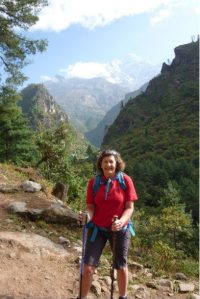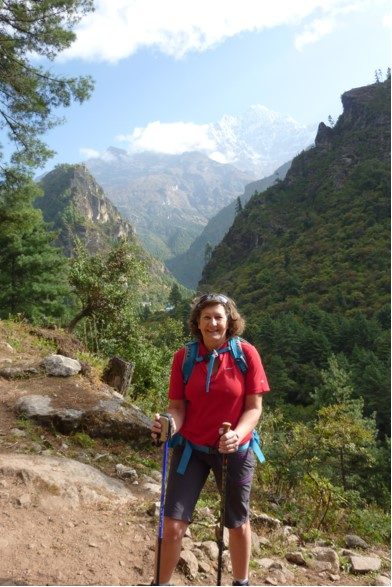
Mako robot-assisted total hip replacement
Modern hip replacement surgery was pioneered by Sir John Charnley in the UK in the early 1960s. The procedure and implant used were developed and refined over the next 30…

Modern hip replacement surgery was pioneered by Sir John Charnley in the UK in the early 1960s. The procedure and implant used were developed and refined over the next 30…

Total hip replacement surgery is one of the most successful, cost-effective and safest operations in the world today. However, despite its overall success rate, hip replacement surgery is a major…

With around 80,000 carried out each year, hip replacements are one of the most common elective surgical procedures in Britain. We speak to 41-year-old Rhys Gwilliam who managed 16 years…

Total hip replacement surgery is one of the most successful, cost-effective and safest operations in the world today. However, despite its overall success rate, hip replacement surgery is a major procedure which requires expertise and experience.
“At the relatively young age of 50, I found myself needing a hip replacement. I had always led an active life, enjoying a whole range of activities from running to cycling, skiing, horse-riding and swimming. Over a relatively short period of time, I became less active due to severe pain in my left hip.
Eventually, I stopped doing the activities I enjoyed, rapidly reaching the stage where I could barely walk.
I was referred, by my GP, to consultant orthopaedic surgeon and hip specialist Mr Matthew Burwell. During the consultation, we discussed the impact hip pain was having on my life. Matthew Burwell listened patiently then explained the options open to me.
After agreeing to have hip replacement surgery, I was given a convenient date for the operation.
The facilities at Circle Bath hospital were amazing, and the staff all incredibly caring. I was so well looked after that it was like being in a hotel rather than a hospital! The day after the operation, with the help of the specialist physiotherapy team, I was out of bed and walking with the aid of a frame. My recovery quickly progressed and on day two I was walking with the aid of sticks. By day three I was up and down the corridors and tackling the stairs. My recovery over the following weeks was amazing,” says Sarah
Hip replacement surgery may be an option for you if your pain interferes with daily activities and more-conservative treatments are no longer effective. There are a number of conditions which patients requiring hip replacement surgery present with but for over 90% of patients arthritis is the main cause.
“Sarah had arthritis in her left hip. Initially, she responded well to anti-inflammatory medication. When this was no longer effective we agreed to surgically replace her left hip in order to improve functionality and quality of life. Due to Sarah’s desired activity level and relatively young age, we recommended an un-cemented hip replacement with a ceramic-on-ceramic bearing,” says Matthew Burwell, who performs an average of 320 hip replacement surgeries a year.
As the hip becomes arthritic the ball and socket become damaged, the bones develop extra bone which makes them stiff and the soft tissue thickens, reducing the range of movement. Hip replacement surgery replaces the ball of the joint.
“Just two years later I went to see Matthew Burwell again to have my right hip replaced. Having regained my mobility after the first replacement, my right hip then gave up and I was reduced to poor mobility. I was barely able to walk.
Circle Bath hospital gave me an operation date which was only a few weeks after my consultation. The recovery period was again amazingly quick. I couldn’t believe how well I was, and how quickly I had recovered. I was even able to go down and do my Christmas shopping in the hospital gift shop!
Within weeks I felt completely back to myself again and was starting to get back to normal day-to-day activities. I decided to give up running, and start walking more.
When the opportunity arose to visit Everest Base Camp, I started my training in earnest,” says Sarah
“On review, almost two years after her left hip replacement, Sarah reported intrusive symptoms arising from her right hip that were no longer controlled with anti-inflammatory medication and painkillers. We agreed to replace her right hip the following month with identical un-cemented implants, again opting for a ceramic-on-ceramic bearing,” says Matthew Burwell.
“So, Everest Base Camp became my challenge! After my second hip replacement operation, amidst much trepidation, I set off for Nepal with a group of 22 others, to trek to Everest Base Camp. We trekked for 16 days. It was tough with long, steep ascents, made more difficult by the high altitude. The path was generally stable but the terrain varied considerably. There were sections where we were scrambling over boulders, walking alongside rivers, traversing high wire bridges, dodging the yaks and donkeys, and the relentless up, up, up the ascent.
It was definitely the most challenging and rewarding experience of my life.
In the darkest moment, when the ups seemed to never end, I pushed on forwards telling myself that I was going to get up to Everest Base Camp just so that I could show Matthew Burwell a photograph on my return. I wanted to tell him just what he had enabled me to achieve.
And my hips never even ached,” says Sarah
It is now over five years since Sarah’s left hip replacement and over three years since the right hip replacement. Sarah’s return to a very active lifestyle is despite having had both hips replaced.
There are a number of questions you may want to ask when choosing your surgeon for a major procedure. One is the number of procedures that the surgeon undertakes each year.
The BMJ Journal, in 2014, published findings from a study demonstrating that patients whose surgeons perform more than 35 total hip replacements per year have fewer complications compared to patients whose surgeons perform less each year.
You can read the full study here https://www.bmj.com/content/348/bmj.g3284
The National Joint Register records information about consultant surgeons and their practice including how many joint procedures they have carried out. View Matthew Burwell’s data here. http://www.njrsurgeonhospitalprofile.org.uk/SurgeonProfile?gmccode=3302190
If your GP has referred you to an orthopaedic surgeon and joint replacement surgery is recommended, do ask your surgeon questions such as the ones below:
What are the potential complications and risks associated with hip replacement surgery?
Which implant have you chosen for my hip replacement?
How many hip replacements do you perform each year?
What follow-up treatment will I receive?
What will happen if I don’t have surgery?
When will I be able to enjoy normal day to day activities?
